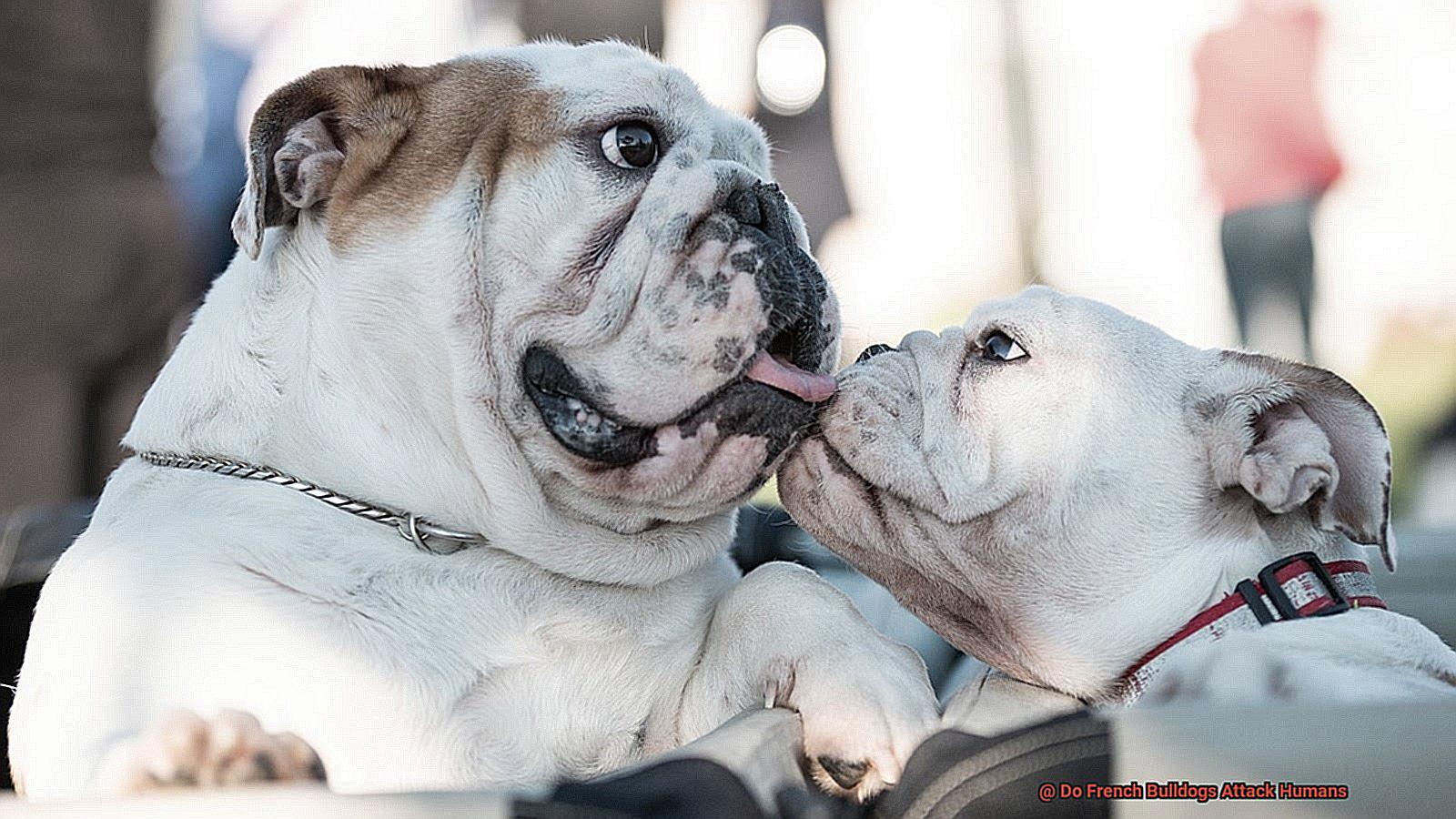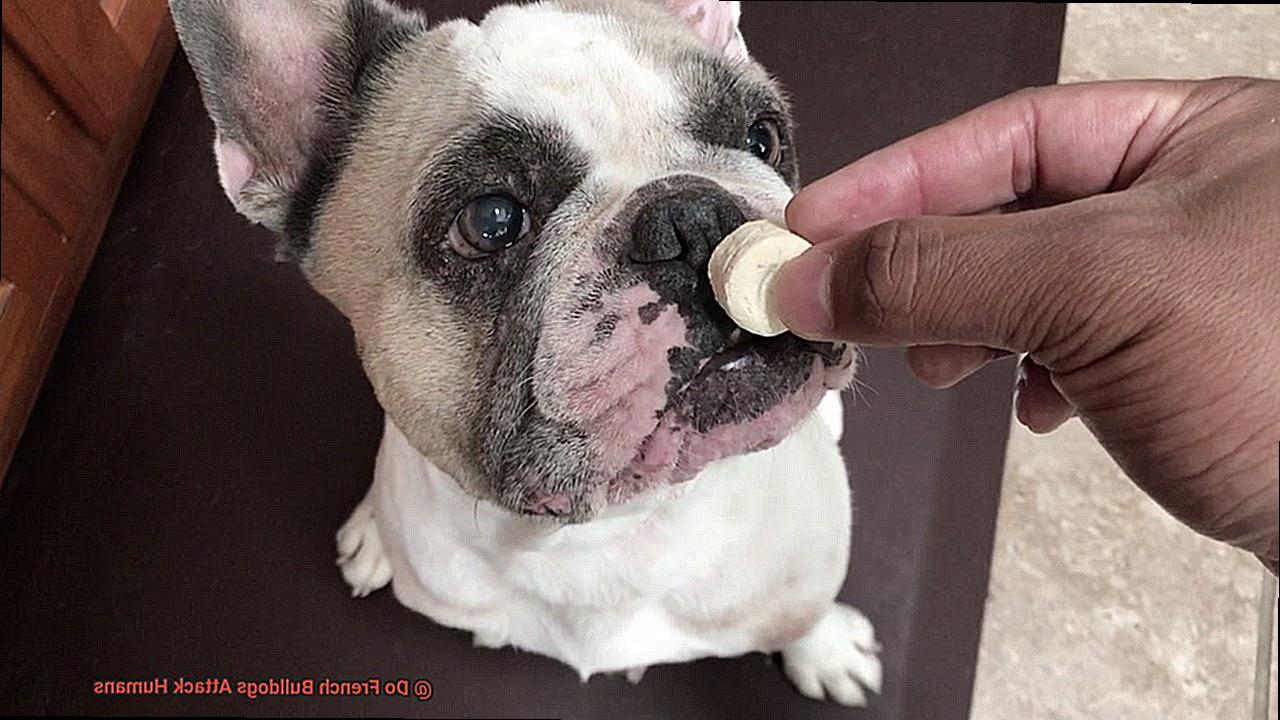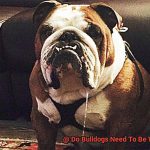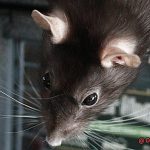Do French Bulldogs Attack Humans?
French Bulldogs – those squish-faced, playful bundles of joy that have stolen our hearts. They’re pint-sized companions with a big personality, but there’s a nagging question that’s been barking at us: Do French Bulldogs ever turn on their human pals?
In this blog post, we’re diving headfirst into this debate to uncover the real story behind these lovable canines. We’ll be sniffing out the factors that shape a dog’s temperament and digging deep to reveal any hidden reasons that might provoke aggressive behavior. So grab your magnifying glass and join us as we unravel the mystery of whether French Bulldogs are truly prone to attacking humans.
What is Aggression in French Bulldogs?
Contents
- 1 What is Aggression in French Bulldogs?
- 2 Causes of Aggression in French Bulldogs
- 3 Signs of Aggression in French Bulldogs
- 4 Preventing Aggression in French Bulldogs
- 5 Training and Socialization for French Bulldogs
- 6 Establishing Pack Leadership with French Bulldogs
- 7 Professional Help for Aggressive Behavior in French Bulldogs
- 8 Responsible Ownership and Care for French Bulldogs
- 8.1 Socialization – A Recipe for Good Behavior:
- 8.2 Training – The Key to a Well-Behaved Frenchie:
- 8.3 Supervision – Better Safe Than Sorry:
- 8.4 Health and Well-being – Happy Frenchie, Happy Life:
- 8.5 Respect Personal Space – Boundaries Matter:
- 8.6 Neutering/Spaying – A Win-Win Solution:
- 8.7 Seek Professional Help – The Expert’s Touch:
- 9 Conclusion
French Bulldogs are beloved for their friendly and affectionate nature, making them popular companions for families and individuals alike. However, like any other breed, French Bulldogs can display aggression under certain circumstances. In this article, we will delve into the topic of aggression in French Bulldogs, exploring its different forms and shedding light on how to address and manage this behavior.
The Different Forms of Aggression:
- Territorial Aggression: French Bulldogs may become protective of their territory, whether it’s their home or their favorite spot in the park. This can manifest as barking, growling, or even biting when unfamiliar people or animals enter their space.
- Fear Aggression: When a French Bulldog feels threatened or scared, it may respond with aggression as a defense mechanism. This type of aggression can be triggered by loud noises, unfamiliar environments, or past traumatic experiences.
- Resource Guarding: Some French Bulldogs may display aggression when they perceive a threat to their valuable possessions, such as food, toys, or even their favorite blanket. This behavior is known as resource guarding and can lead to growling or snapping if someone tries to take away what they consider theirs.
Recognizing the Warning Signs:
To prevent potential harm and effectively address aggression in French Bulldogs, it is crucial to recognize the warning signs. These may include growling, snarling, raised hackles, stiff body posture, intense staring, or a sudden change in behavior. Paying attention to these signals can help diffuse a potentially aggressive situation before it escalates further.
Addressing Aggression:
- Seek Professional Help: If you notice signs of aggression in your French Bulldog, it is essential to consult with a certified dog trainer or behaviorist who specializes in aggression cases. They will assess the specific triggers and develop a tailored training program to modify the aggressive behavior.
- Early Socialization: Proper socialization from an early age is key to preventing aggression in French Bulldogs. Expose them to different people, animals, and environments to help them build confidence and reduce the likelihood of fear-based aggression.
- Consistent Training: Establish clear boundaries and reinforce appropriate behavior through consistent training. Positive reinforcement techniques, such as treats and praise, are effective in shaping a French Bulldog’s behavior without resorting to punishment or aversive methods.
Causes of Aggression in French Bulldogs
French Bulldogs, with their adorable wrinkled faces and playful personalities, are generally known for their friendly and affectionate nature. However, like any other dog breed, they can display aggressive behavior under certain circumstances. Understanding the causes of aggression in French Bulldogs is essential for owners to address and manage this behavior effectively. Here are some key factors that can contribute to aggression in French Bulldogs:
- Genetic Predisposition: Some French Bulldogs may have a genetic predisposition towards aggression. Certain bloodlines or individual dogs may have inherited aggressive tendencies from their ancestors. While genetics play a role, it is important to note that not all French Bulldogs will exhibit aggressive behavior solely based on their genes.
- Early Socialization: Proper socialization during the early stages of a French Bulldog’s life is crucial in preventing aggression. Lack of exposure to different people, animals, and environments can lead to fear-based or defensive aggression later on. It is important to introduce your French Bulldog to various experiences in a positive and controlled manner from a young age.
- Training Methods: The way a French Bulldog is trained can also contribute to their aggression levels. Harsh or punitive training methods can create fear or anxiety, leading to defensive aggression. On the other hand, positive reinforcement training techniques promote trust and cooperation, reducing the likelihood of aggressive behavior.
- Environmental Factors: The environment in which a French Bulldog lives can influence their behavior. Factors such as a stressful household, lack of exercise or mental stimulation, and inconsistent routines can all contribute to aggression in these dogs. Creating a calm and structured environment can help prevent aggression.
- Medical Conditions: In some cases, aggression in French Bulldogs may be due to underlying medical issues. Pain or discomfort from conditions like hip dysplasia or dental problems can cause a typically docile dog to become aggressive as a defensive response. Regular veterinary check-ups are important to rule out any medical causes for aggression.
- Fear and Protective Instincts: Fear is a common trigger for aggression in dogs, including French Bulldogs. If a dog feels threatened or cornered, they may respond aggressively as a means of self-defense. Additionally, French Bulldogs are known for their protective instincts towards their owners or their territory, which can manifest as aggression if they perceive a threat.
- Lack of Boundaries and Leadership: Dogs thrive in environments where clear boundaries and leadership are established. Without proper guidance and structure from their owners, French Bulldogs may become confused and anxious, leading to behavioral problems, including aggression. Providing consistent rules and being a confident leader can help prevent aggression.
- Lack of Socialization with Other Dogs: French Bulldogs are generally sociable dogs, but inadequate socialization with other dogs can lead to fear or aggression towards unfamiliar canines. Proper introductions and positive experiences with other dogs from an early age can help prevent aggressive behavior.
Signs of Aggression in French Bulldogs
Your adorable wrinkled warriors might give you a surprise when it comes to aggression. In this blog post, we will delve into the signs of aggression in French Bulldogs, helping you understand and address these behaviors effectively. So grab a croissant and let’s get started.
Growling: A Warning Sign
When your Frenchie growls, pay attention. This vocalization is their way of communicating discomfort or warning. It could mean they feel threatened or anxious in a particular situation. Take note of the context and take steps to ease their stress.
Snapping and Biting: The Rare But Serious Side
Though rare, some French Bulldogs may resort to biting when they feel extremely threatened or cornered. Startling them, territorial behavior, or pain can trigger this aggression. Stay vigilant in identifying potential triggers and intervene early on. Socialization and training from a young age can help minimize this behavior.
Body Language Speaks Volumes
A Frenchie’s body language can reveal their emotional state and potential for aggression. Raised hackles, stiff posture, and a tense facial expression indicate defensiveness or aggression. Dominant behaviors like standing tall, intense staring, or leaning forward should also serve as red flags. Learn to read their signals and intervene before things escalate.

Resource Guarding: Possessiveness Over Beloved Items
French Bulldogs may display aggression while guarding their food, toys, or other valuable items. Growling, snapping, or even biting when approached during possession are signs of resource guarding. Seek professional guidance from a dog trainer or behaviorist to tackle this issue effectively.
Seek Professional Help
Aggression in French Bulldogs can stem from various factors such as genetics, lack of socialization, fear, or medical conditions. To address these issues appropriately, consult a veterinarian or qualified dog behavior professional. They can identify the root cause and guide you with training techniques and behavior modification strategies.
Preventing Aggression in French Bulldogs
French Bulldogs are known for their friendly and affectionate nature, but like any dog breed, they have the potential to exhibit aggressive behavior. Understanding the factors that contribute to aggression and implementing preventive measures can help ensure a well-behaved and happy French Bulldog. In this guide, we will explore practical steps to prevent aggression in French Bulldogs.
Start with Proper Socialization:
Proper socialization is crucial in preventing aggression. Expose your French Bulldog to different people, animals, and environments from a young age. This helps them develop positive associations and reduces the likelihood of aggressive behavior. Take them on walks, introduce them to other dogs, and allow them to interact with various individuals.
Consistent Training:
Training plays a vital role in preventing aggression. Use positive reinforcement-based training methods to teach your French Bulldog basic commands and proper behavior.
Be consistent in rewarding good behavior and redirecting undesirable actions. This helps establish boundaries and reinforces positive habits.
Provide Mental and Physical Stimulation:
A well-stimulated French Bulldog is less likely to exhibit aggressive behavior out of frustration or boredom. Engage your dog in regular exercise, interactive playtime, and provide puzzle toys to keep their mind active. This helps channel their energy in a positive way and reduces the chances of them becoming aggressive.
Establish Clear Boundaries:
Consistency is key when it comes to establishing boundaries within the household. Ensure that everyone in the family is on the same page regarding rules and expectations for your French Bulldog. Avoid reinforcing dominant behavior and be firm but fair in enforcing these rules.
Monitor Health and Address Medical Issues:
Health problems can sometimes contribute to aggression in dogs. Schedule regular veterinary check-ups, provide a balanced diet, and address any medical conditions promptly. Pain or discomfort can manifest as aggression, so it’s important to keep your French Bulldog healthy and address any potential issues.
Early Detection and Professional Help:
Recognizing the signs of aggression early on is crucial in preventing escalation. Learn to understand your French Bulldog’s body language and recognize warning signs such as growling, snapping, or stiffening of the body. If you notice concerning behavior, seek professional help from a dog behaviorist or trainer who can guide you on how to address and manage aggression effectively.
Responsible Ownership:
Responsible ownership is essential in preventing aggression. Provide a loving and stable environment for your French Bulldog, meet their physical and emotional needs, and ensure they receive proper training and socialization. A well-cared-for dog is less likely to exhibit aggressive behavior.

Training and Socialization for French Bulldogs
Training and socialization are the keys to raising a well-behaved and friendly companion. In this pawsome blog post, we’ll dive into the world of French Bulldog training and socialization, sharing expert tips and tricks to ensure your furry friend becomes the best version of themselves. So grab a croissant, sit back, and let’s get started.
Start Early, Start Strong:
Training should begin as soon as you welcome your Frenchie pup into your home. These little bundles of joy are like sponges, soaking up knowledge from day one. Establish yourself as the pack leader by setting consistent rules and boundaries. Remember, being a pack leader doesn’t mean being bossy – it means providing guidance and structure with love and kindness.
Positive Reinforcement All The Way:
French Bulldogs respond best to positive reinforcement techniques. Praise, treats, belly rubs – these are the keys to their hearts. Reward good behavior promptly, so your Frenchie knows what they did right. It’s all about creating positive associations with desired behaviors.
Obe-WHAT-sience? Basic Obedience Training:
Teaching your Frenchie basic commands like “sit,” “stay,” and “come” is essential for their safety and your sanity. Make training sessions short and fun – think of it as a game of hide-and-seek with treats as rewards. Remember to use clear and consistent hand signals or verbal cues.
Paw-sitive Socialization:
Socializing your French Bulldog is crucial for shaping their personality and preventing aggression. Introduce them to new experiences, people, animals, sights, sounds, and smells gradually and positively. Take them for walks in different environments, invite friends over, and consider puppy socialization classes. The more they explore, the more confident and friendly they’ll become.
Aggression Alert:
While French Bulldogs are generally friendly, some may show signs of aggression due to genetics or past experiences. If you notice any concerning behaviors, consult a professional trainer or behaviorist for guidance. They can help assess the situation and provide tailored advice to address any aggression issues.
Establishing Pack Leadership with French Bulldogs
Section: Establishing Pack Leadership with French Bulldogs
Bonjour, fellow French Bulldog enthusiasts. If you’re looking to establish pack leadership with your adorable Frenchie, you’ve come to the right place. In this section, we’ll explore some pawsitively effective techniques to ensure your furry friend respects and obeys you as their pack leader.
Setting Consistent Rules and Boundaries:
French Bulldogs thrive on structure, so it’s crucial to establish clear rules and boundaries from the start. Consistency is key, mes amis. Make sure everyone in the family is on the same page and enforces the rules consistently. This will prevent confusion and unwanted behaviors.
Being the Alpha:

To establish yourself as the alpha or pack leader, channel your inner French elegance and exude confidence, calmness, and assertiveness in your interactions with your Frenchie. Remember, dogs are more likely to obey and respect someone who displays these qualities. So, be the leader your Frenchie needs.
Structure and Routine:
Just like a croissant needs a recipe, your Frenchie needs a structured routine. Set a schedule for feeding, exercise, playtime, and training sessions. This will help your Frenchie feel secure and understand their place in the family hierarchy.
Training Time:
Training is an essential ingredient in establishing pack leadership. Teach your Frenchie basic obedience commands consistently from an early age, using positive reinforcement techniques like treats and praise. This will not only improve their discipline but also reinforce your position as the leader of the pack.
Socialization is Key:
To raise a well-rounded Frenchie, socialization is a must. Introduce them to different environments, people, and animals from a young age. This will help them understand their place within the pack and develop into confident individuals.
Remember, establishing pack leadership does not involve harsh or punitive methods. Embrace positivity and use rewards and praise to reinforce desirable behaviors. This approach will make your Frenchie more eager to please you and strengthen your bond.
Professional Help for Aggressive Behavior in French Bulldogs
French Bulldogs are known for their playful and affectionate nature, but like any breed, they can exhibit aggressive behavior. Dealing with aggression in your beloved Frenchie can be challenging, which is why seeking professional help is essential. In this article, we will delve into the importance of professional guidance when addressing aggressive behavior in French Bulldogs.
Rule out Medical Causes:
Before addressing aggression, it is crucial to eliminate any underlying medical conditions that may contribute to the behavior. A comprehensive veterinary examination should be conducted to ensure there are no health issues affecting your Frenchie’s behavior.
Behavioral Assessment:
A professional dog trainer or behaviorist will assess your Frenchie’s behavior to identify the underlying causes of aggression. Through observations, behavior assessments, and gathering information about your Frenchie’s history and environment, they can develop an accurate understanding of the situation.
Customized Behavior Modification Plan:
Based on the assessment, a professional will create a customized behavior modification plan tailored to your Frenchie’s specific needs. This plan may include positive reinforcement training, desensitization and counter-conditioning, and management strategies.
Positive Reinforcement Training:
This technique focuses on rewarding desired behaviors while redirecting or ignoring unwanted ones. Using treats, toys, or praise as rewards helps reinforce good behavior in your Frenchie.

Desensitization and Counter-Conditioning:
This approach aims to change your Frenchie’s emotional response to triggers that elicit aggression. Gradual exposure to these triggers in a controlled manner, paired with positive experiences like treats or playtime, helps modify their response.
Medication Options:

In some cases, medication may be recommended as part of the behavior modification plan. Medications prescribed by a veterinarian can help reduce anxiety or aggression and are often used in conjunction with behavioral therapy.
Consistency and Patience:
Implementing a behavior modification plan requires consistency and patience from the owner. Following the professional’s guidance and remaining committed to the training process is key. Results may not be immediate, but with time and effort, aggressive behaviors can be managed or eliminated.
Conclusion:
Aggressive behavior in French Bulldogs should not be taken lightly, as it can pose risks to both the dog and those around them. Seeking professional help is crucial for addressing aggression effectively and ensuring a safe and happy Frenchie. With the guidance of a professional, you can understand and modify your Frenchie’s behavior, creating a harmonious environment for everyone involved.
Responsible Ownership and Care for French Bulldogs
As an expert in responsible ownership and care, I’m here to share some valuable insights and guidelines to ensure that you and your French Bulldog have a safe and harmonious relationship. So, let’s dive right in.
Socialization – A Recipe for Good Behavior:
Just like humans, French Bulldogs need to socialize to learn appropriate behavior. Introduce your Frenchie to various environments, people, and other animals from an early age. Gradually expose them to new experiences, always providing positive interactions. This will help your Frenchie develop good social skills and reduce the likelihood of aggression towards humans.
Training – The Key to a Well-Behaved Frenchie:
Consistent and positive training techniques are essential for molding your Frenchie into a polite pooch. Teach them basic obedience commands such as sit, stay, and come using reward-based methods. Treats and praise go a long way in reinforcing desired behaviors.
Supervision – Better Safe Than Sorry:
Always keep an eye on interactions between your Frenchie and humans, especially children or unfamiliar individuals. While French Bulldogs are generally friendly, unexpected behavior can arise if they feel threatened or uncomfortable. Supervision allows you to intervene if necessary and prevent potential incidents.
Health and Well-being – Happy Frenchie, Happy Life:
A healthy Frenchie is a happy Frenchie. Regular veterinary check-ups, vaccinations, and parasite prevention are crucial for ensuring their overall well-being. Additionally, provide a balanced diet, exercise, mental stimulation, and plenty of playtime to keep your Frenchie content.
Respect Personal Space – Boundaries Matter:
Just like us, dogs have their own personal space preferences. Respect your Frenchie’s boundaries by allowing them to have their own safe spaces where they can retreat if they feel overwhelmed or stressed. Avoid forcing interactions or invading their personal space without invitation.
Neutering/Spaying – A Win-Win Solution:
Neutering or spaying your Frenchie can help reduce aggression-related behaviors. This procedure can decrease any territorial or dominance-related tendencies that might lead to potential aggression towards humans or other animals.
Seek Professional Help – The Expert’s Touch:
If you notice concerning behavior from your Frenchie, such as growling, snapping, or biting, don’t hesitate to seek professional help. Certified dog behaviorists or trainers can provide valuable insights and guidance to address and manage any underlying issues effectively.
Conclusion
In conclusion, it is important to remember that while French Bulldogs are generally known for their friendly and affectionate nature, any dog has the potential to become aggressive under certain circumstances.
However, instances of French Bulldogs attacking humans are extremely rare. It is crucial for owners to provide proper training, socialization, and supervision to ensure a well-behaved and balanced dog.
Ultimately, responsible ownership and proactive measures can greatly reduce the risk of French Bulldogs or any other breed attacking humans.




